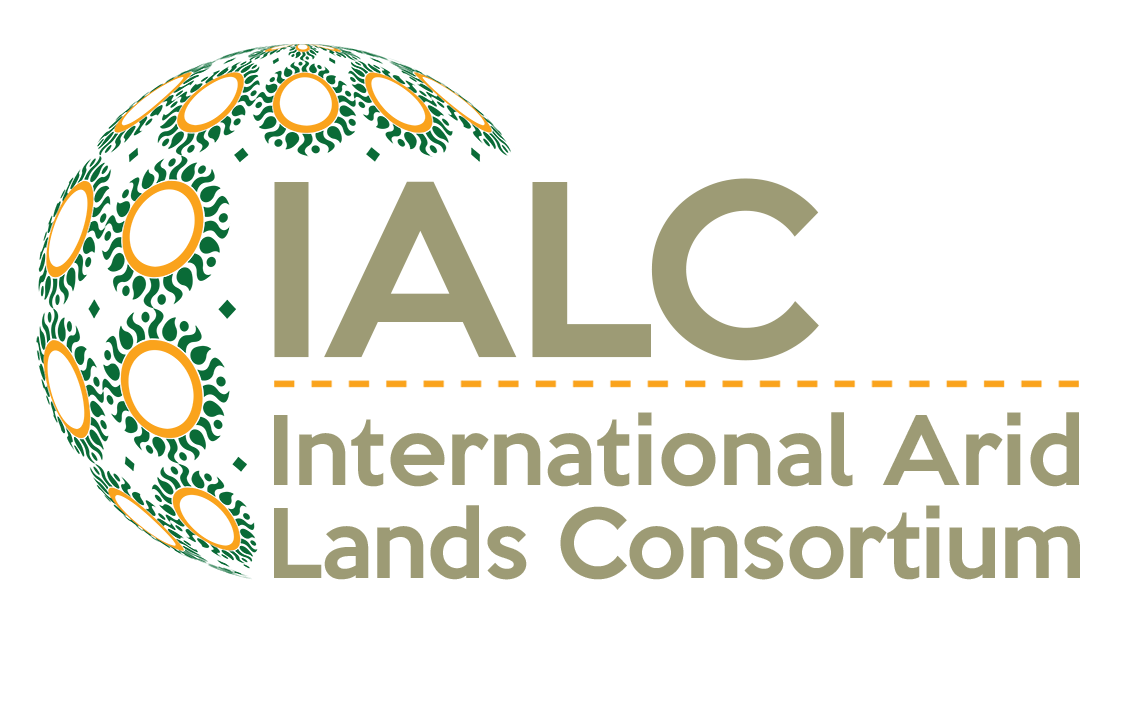International Arid Lands Consortium Contributes to the Middle East Peace Process Through Scientific Collaboration Among Nations Affected by Desertification
International Arid Lands Consortium (IALC) brings together scientists from Jordan, Israel and the United States to solve critical water shortage problems in Jordan
August 10, 2000 (Tucson, AZ)-- The International Arid Lands Consortium (IALC) Board of Directors met in Chicago at the University of Illinois on July 27-28. Member institutions presented updates of ongoing programs which provide scientists and students with opportunities to play a vital role in the Middle East peace process by virtue of their collaboration.
In a rich exchange of information, IALC promotes the sharing of scientific expertise and exploration. IALC research programs have educated scientists from the United States, Egypt, Israel, Jordan, and other arid regions about critical land management issues. Many Middle Eastern nations have more than 2000 years of history in managing water shortages and maintaining fragile natural resources. IALC researchers study the relationship between soil, water, plant nutrients and animals in arid agriculture; the use of satellite technology to monitor global climate change; and agricultural management practices used in arid lands around the world.
Students are able to benefit and contribute through their participation in the IALC Peace Fellowship Program. Select students live and work with scientists in countries outside their homeland. Peace Fellowship participants gain a greater understanding of the importance of globalization as they work in new areas of the world. They also share their new knowledge with colleagues in their home institutions.
Desertification and its consequences cross political boundaries. IALC ensures that solutions to many problems, such as water shortages, are explored and developed despite ongoing political conflict in the Middle East.
One example of IALC's multi-national contribution is a two-year project, entitled, "The Feasibility of Water Harvesting and Storage in Shallow Aquifers in the Eastern Badia of Jordan." Scientists from the Water Resources Center of the Desert Research Institute in Nevada, the Department of Earth and Environmental Sciences at Yarmouk University in Jordan, and the Institute of Earth Sciences at the Hebrew University of Jerusalem in Israel are collaborating to solve the water crisis in Jordan.
Jordan is facing a serious long-term water crisis caused by a number of natural and human factors. Due to the arid and semi-arid climate, available water resources are limited. In addition, population growth and economic development are placing increasing demands on the available water resources, which affects not only the quantity, but the quality of this water.
Jordan currently consumes about 875 million cubic meters (MCM) of water annually, with an expected rise in demand in the near future due to population expansion and economic growth.
The discovery (or rediscovery) of shallow aquifers in the northeastern desert (Badia) of Jordan offers intriguing possibilities that water that previously was assumed to be lost to evaporation may be partially recharged into these shallow aquifers.
Water in the desert represents a significant part of the water budget of Jordan. This water is dispersed over a wide area and, if properly collected, could provide a significant addition to the water reserves of the country.
This research project aims to show that the harvest of surface runoff for groundwater recharge is a viable approach to partially resolving the water shortage problem in Jordan and rehabilitating the ecosystems damaged by groundwater mining. The research focuses on the Ashaqif highlands in northeastern Jordan. In addition to investigating natural recharge and determining if artificial recharge using runoff will have any adverse impacts on the aquifer, the research provides the data required to examine alternatives to "natural" recharge such as injection wells. The knowledge and methods developed on this project are transferable to Nevada and other arid regions confronted with similar problems.
Support for this project came from the USDA Cooperative State Research, Education, and Extension Service.
#######
The International Arid Lands Consortium (IALC) is an independent nonprofit organization dedicated to exploring the problems and solutions unique to arid and semiarid regions. IALC promotes cooperative research and practical application of new knowledge to develop sustainable ecological practices. The member institutions and their affiliates share a mission to enable people of arid lands to improve the quality of life for future generations. IALC members include the University of Arizona, Desert Research Institute-Nevada, the University of Illinois, Jewish National Fund, New Mexico State University, South Dakota State University, Texas A&M University-Kingsville, and the Higher Council for Science & Technology-Jordan. The Ministry of Agriculture & Land Reclamation-Egypt is an affiliate member.
Project Addressed in this News Release:
- 00R-03 The Feasibility of Water Harvesting and Storage in Shallow Aquifers in the Eastern Badia of Jordan (Desert Research Institute-Nevada, Yarmouk University-Israel, Hebrew University of Jerusalem)

